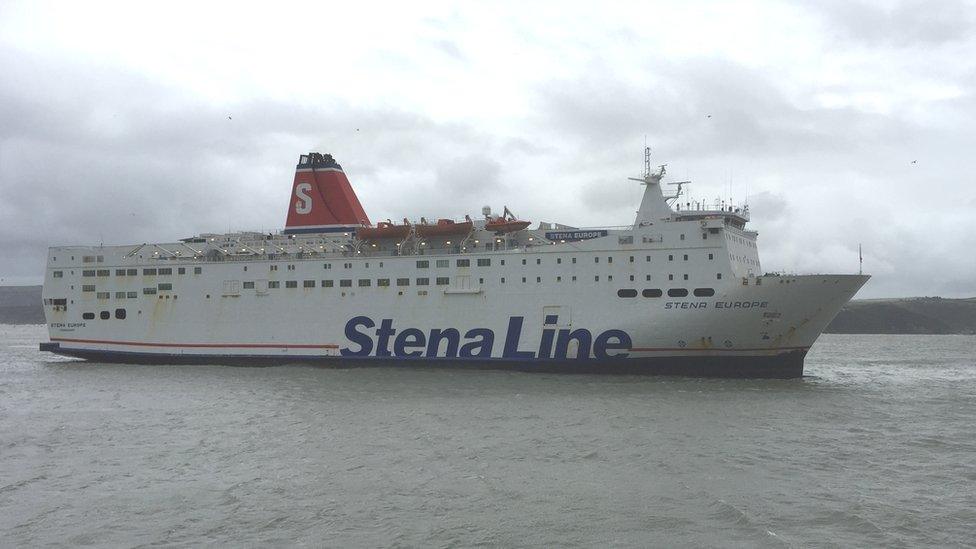Fishguard folk hero's spirit in Brexit mood?
- Published
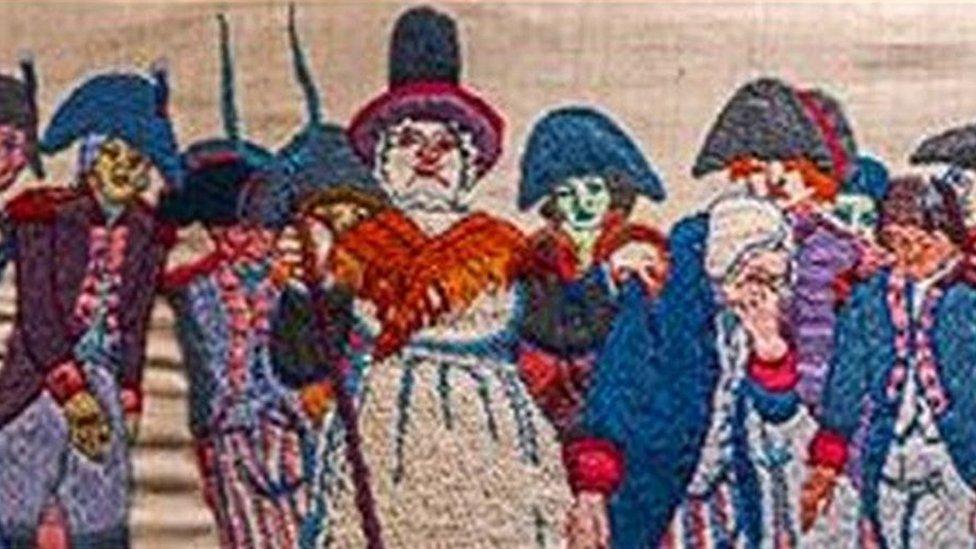
Jemima Nicholas on The Last Invasion Tapestry
The other day I came face to face with Jemima Nicholas, the famous Fishguard folk hero.
If you're from the town, you already know the story. It's 22 February 1797.
Fourteen hundred well-armed but ill-disciplined French troops have invaded the area.
Local people take up arms against them, supported by a hastily assembled militia. Jemima, armed only with a pitchfork, rounds up 12 of the invaders single handed and locks them in the local church, where her memorial stone now stands.
Jemima looms large in the wonderful tapestry that commemorates the bizarre events of 222 years ago. Inspired by the Bayeux Tapestry, The Last Invasion Tapestry, external is the work of local women and on permanent display in Fishguard library.
Intricate, colourful and full of action, it depicts Jemima standing fierce and strong, her prisoners weeping and green faced around her.
They are so helplessly in her power, she doesn't even need to look at them. Instead she stares out at you, holding her pitchfork, calm and confident. "Don't mess with me," she seems to be saying.
And that message sums up much of the Brexit sentiment I encountered in Fishguard.
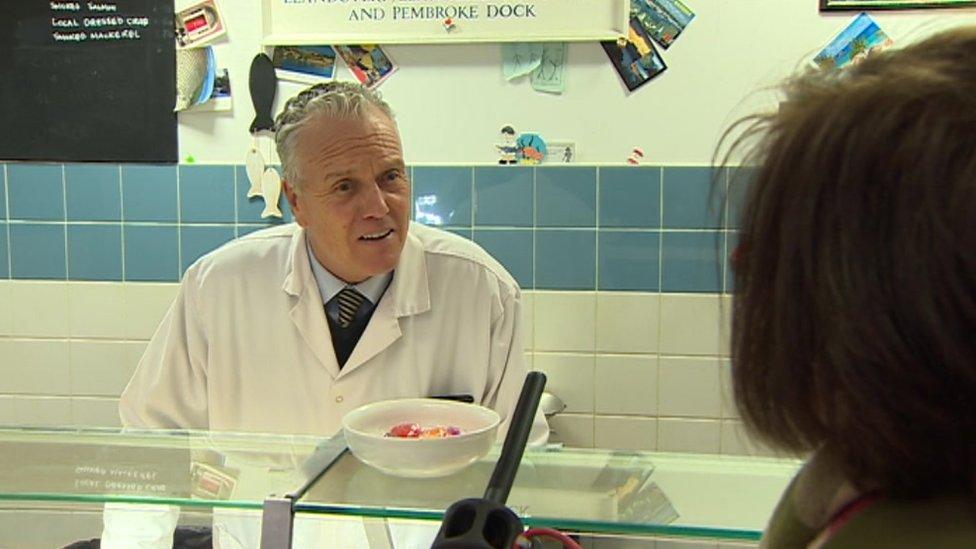
Fishmonger Phil: "We're stockpiling a lot of hysteria at the moment"
It was one of friendliest places I've ever visited. Everyone was relaxed and happy to chat - even about Brexit (which in my experience is not always a great ice breaker).
But they were also very firm in their opinions. And most of them want MPs to get on with it.
In the referendum, 57% of voters in Pembrokeshire wanted to leave.
"We just want to get on with it…we're not going to be bullied" one market trader told me.
Yet Fishguard is exposed to Brexit….the ferry port saw nearly £1bn worth of EU cargo go back and forth to Rosslare in the Republic of Ireland in 2014.
The town itself is less than 70 miles from Rosslare - it's nearer than Cardiff or London.
Travel to and from the Irish Republic is a daily event.
The worry now is that if border checks come in after Brexit, the delays will affect the competitiveness of Welsh ports, especially smaller ones like Fishguard, which may not have the capacity to introduce new technology and reconfigure the site.
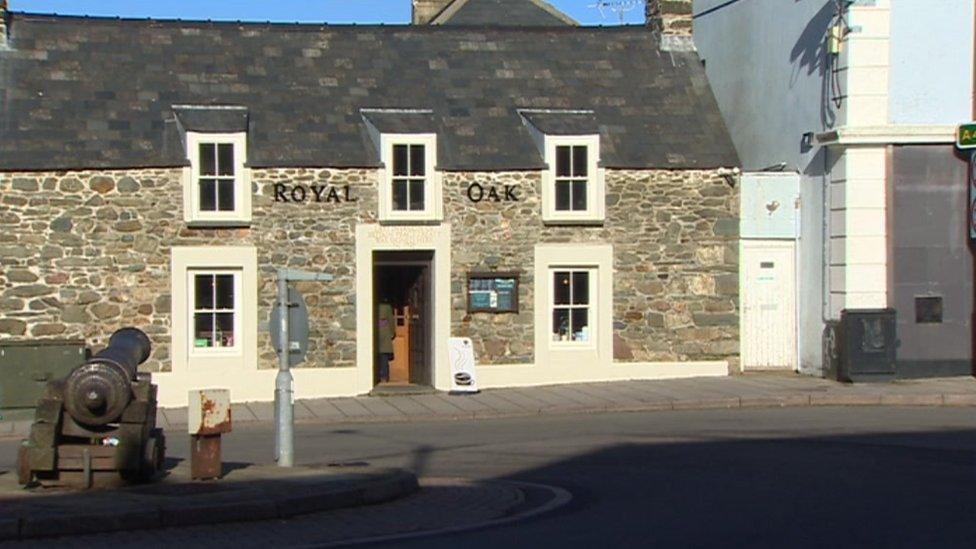
Peace negotiations in 1797 were conducted in the Royal Oak pub
One Remainer I met shared that concern.
"They say the Irish will go straight to France…..the lorries won't come here any more. It's not good." She shrugs.
"I'm not worried for myself, Toby and I will be alright." Toby is her very well behaved dog.
But another Leaver, Phil the fishmonger, waved the concerns away, "We're stockpiling a lot of hysteria at the moment, we should be more optimistic about things."
The town centre itself has seen more prosperous days, but it's loaded with a history that is strongly felt.
To walk the 200 feet from the historic market to the Royal Oak pub, where peace negotiations with the French were conducted in 1797, you have to pass a canon.
But while the history of Fishguard is unusual, the support for Brexit isn't - the majority of Welsh voters in the referendum wanted to leave.
But how we leave is still unclear and it's unlikely that Thursday's vote by MPs will change that.
And with only six weeks until exit day, there's not a lot of time left for them to sort it out.
- Published13 February 2019

- Published11 January 2019
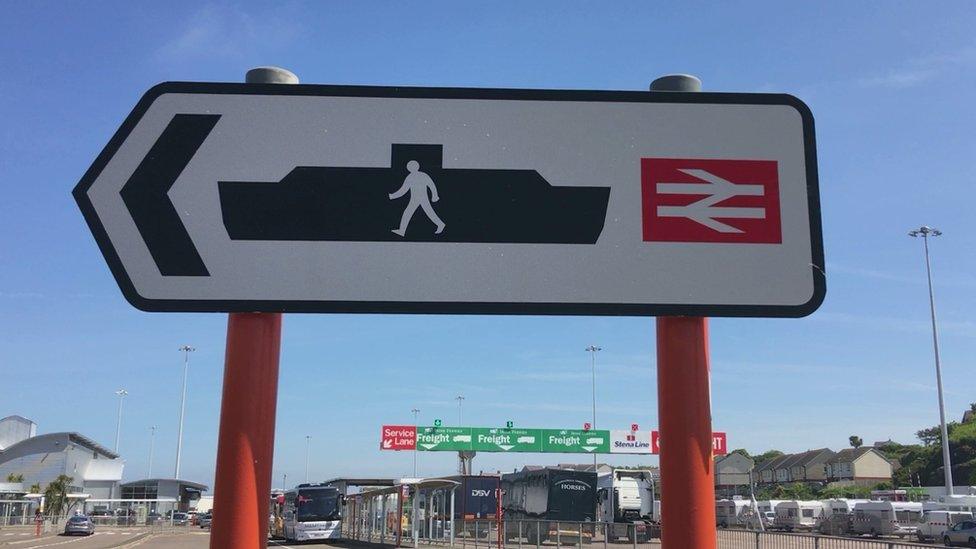
- Published12 November 2018
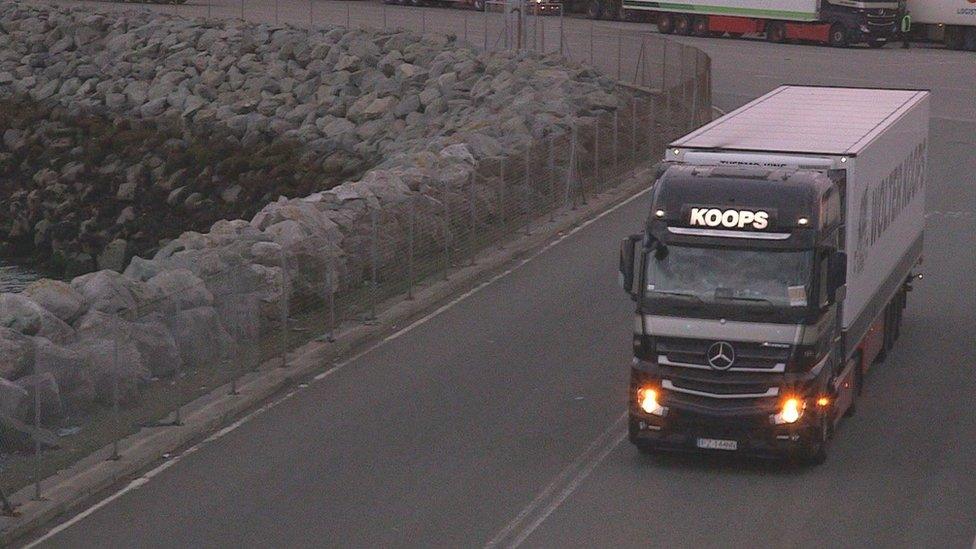
- Published28 June 2018
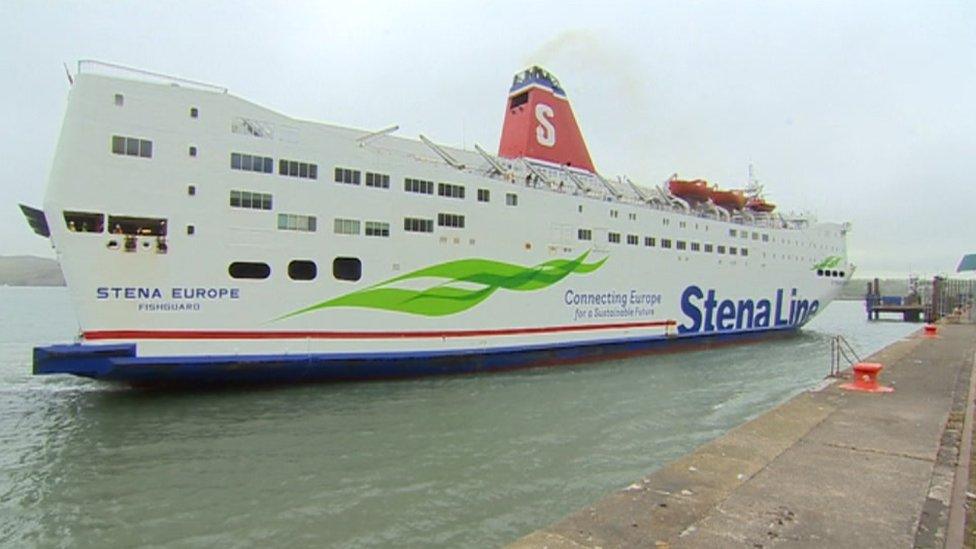
- Published27 June 2018
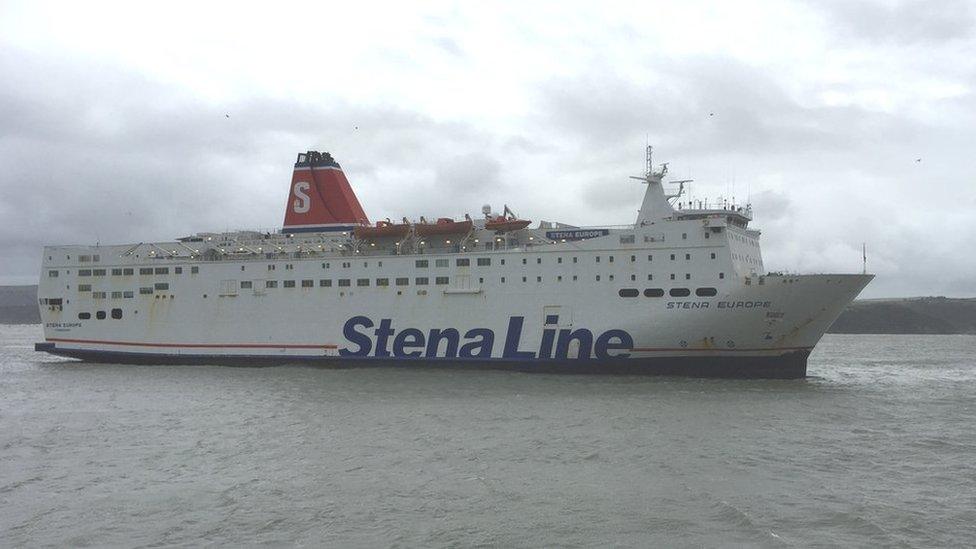
- Published20 April 2018

- Published29 March 2018
